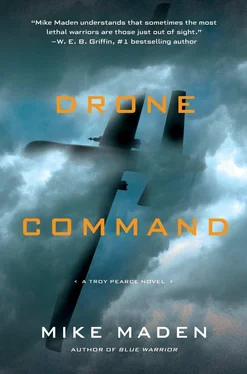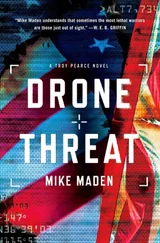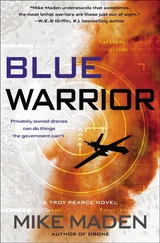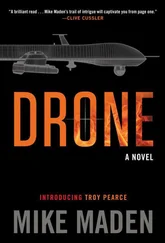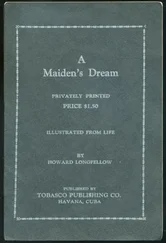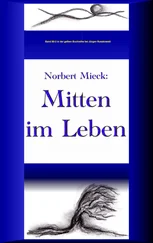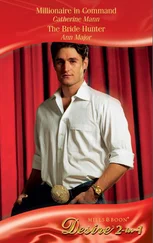“My advice to you is to tell President Sun to call off his dog Feng before the Sixth Fleet steams into Shanghai harbor with all guns blazing.”
“Highly unlikely, Madame President.”
Myers laughed. “Why? Because of the Wu-14? It’s a joke, and we both know it.”
“I am not a military man, but I have been assured of its capabilities.”
“My government knows for a fact that it’s a fraud. We can’t even produce one. And since all of your country’s military advancements only come from stealing ours, I’m completely confident the Wu-14 is nothing more than a two-bit bottle rocket.”
“Spoken like the former president of a failing superpower.”
“You’re an arrogant man representing an arrogant country. Someone needs to teach you both some manners.”
Pang’s pallid face flushed crimson. Myers had scored a direct hit.
“Perhaps I have upset the president. Please forgive my intrusion today. I will take my leave.”
“If I don’t get an apology from Feng personally within twenty-four hours, I’m contacting President Lane.”
“I will convey your message.” Pang turned to leave. He fumbled with the door, unnerved by Pearce’s glowering eyes. He finally got it open and slammed it shut after him, fuming.
Pearce approached Myers. “A little rough on him, weren’t you?”
“That’s the point. It’s not enough to find a Buick. You’ve got to crash it into your man, remember?”
PRESIDENT SUN’S OFFICE
ZHONGNANHAI
BEIJING, CHINA
13 MAY 2017
The headquarters of the Chinese Communist Party and the vast bureaucracy known as the State Council were located behind the ancient red walls of Zhongnanhai, the ornate imperial leisure garden of China’s resplendent emperors.
Vice Chairman Feng and Admiral Ji stood uncomfortably in President Sun’s executive office. The squat, balding technocrat sat glumly behind his massive mahogany desk, his small hands folded quietly in front of him. Four red phones, a single black phone, a row of sharpened pencils, an empty yellow writing tablet, an iPad, and a recent family photo of Sun, his wife, and his daughter were the only items on the fifteen-foot-wide expanse.
Behind Sun, a wall-length bookcase of identical construction as the desk, each shelf neatly stacked with legal, political, and chemical engineering texts, reflecting Sun’s accomplished professional background. Above the bookshelves, a reproduction of the ten-inch-tall, seventeen-foot-long scroll painting Along the River During the Qingming Festival , the most famous work in all of Chinese history. The thousand-year-old painting by the master Zhang Zeduan depicted the prosperous economic life of the Song Dynasty. Sun’s administration referenced the painting as often as possible. It was a clear message conveying the peace and prosperity of an era before both Western colonialism and the brutality of Maoist Communism, the perfect metaphor for Sun’s reform programs.
Feng quietly seethed, waiting for the hapless president to croak out some blathering inanity. Sun looked like a sleepy toad with a bad comb-over, his oily face and hands riddled with liver spots. Dark bags underscored his heavy-lidded eyes, which blinked behind thick prescription lenses wedged into large, unstylish frames.
Sun’s inexorable rise to power had always frustrated Feng. The rancid little bureaucrat had an excellent reputation as an efficient and effective administrator, but he possessed little in the way of charisma or personal presence. His singular virtue was his determined, stubborn spirit. Like dripping water, he invariably wore down his opposition, less by force than by persistence. His unassuming demeanor caused many to underestimate him. His anticorruption reforms at the local and state levels were insignificant as far as Feng was concerned, but it was surprising that Sun survived the ordeal at all. Even the bottom-feeders in China’s ruthless political ecosystem were dangerous. Sun was the compromise choice of a slim majority within the Politburo and the Standing Committee to become China’s latest version of a reform president. His alliances were shaky at best. In Feng’s estimation, Sun’s days were numbered, especially when the nation would come to rally around him in the coming weeks when the oil would begin to flow from the Mao Island project and the American navy was driven out of Chinese territorial waters for good.
President Sun had summoned— summoned! — Feng and Ji to his office today with a terse summary of the meeting’s agenda and a copy of Ambassador Pang’s troubling report.
“I believe the Mao Island project is becoming too dangerous to continue,” President Sun said. “It must be shut down immediately.”
Feng tensed. “But Mao Island drilling has just begun. You’re well aware of the oil and gas reserves we shall capture if we don’t lose heart.”
“The risk of war with the United States is greater than the reward of continued operations.”
“The risk of war poses no danger; only war is dangerous. And the Americans will avoid a war with us at all costs,” Admiral Ji said.
“You nearly killed an American president yesterday. Do you think the Americans wouldn’t have retaliated if you had ended her life?” Sun asked.
Admiral Ji raised his hands in protest. “It was an accident. Had she announced her presence, we would have dealt with the situation differently.”
“I’m afraid the Standing Committee agrees with me, gentlemen. Not you.”
President Sun was the first among equals as one member of the seven-member Standing Committee, the ruling body that controlled the Communist Party of China. The Communist Party of China, in turn, controlled everything else, including the government and military. The Standing Committee met at least once per week and sometimes more if a particular crisis arose. Their decisions were reached through debate and consensus, but once made, they were final. President Sun was the legal head of all three branches of government — party, executive, and military. All of the members of the ruling class, no matter their bureaucratic or military titles, were members of the Party, and the Standing Committee controlled the Party.
President Sun was also the chairman of the Central Military Commission, which controlled all the branches of the military. But Sun’s chairmanship was more ceremonial than actual. Vice Chairman Feng was the true head of the CMC, and General Chen, the other vice chairman, was Feng’s paid lackey. As powerful as he was, however, Vice Chairman Feng wasn’t yet a member of the Standing Committee. He had attained his position as vice chairman of the Central Military Commission three years before Sun rose to the presidency, and though Sun legally could dismiss Feng, he didn’t have the political muscle to do so. Feng’s densely woven web of alliances and secret bank accounts had proven too difficult to crack even for the determined Sun.
“The Standing Committee may agree with you,” Feng said, “but the Central Military Commission certainly does not.” He started to tell Sun that he knew the secret Standing Committee meeting had split four to three on their recent vote because three of the Standing Committee members were on Feng’s payroll, as were half of the Politburo, who elected the Standing Committee, but there was no point in tipping his hand now.
“Vice Chairman Feng is correct,” Admiral Ji said. “The PLAN is quite in favor of our current direction.”
“And the PLAN is willing to risk a catastrophic war for a few gallons of oil?” President Sun asked.
“The Americans don’t want war and neither do we. But there will be no war because the Americans won’t fight us,” the admiral insisted.
Читать дальше
